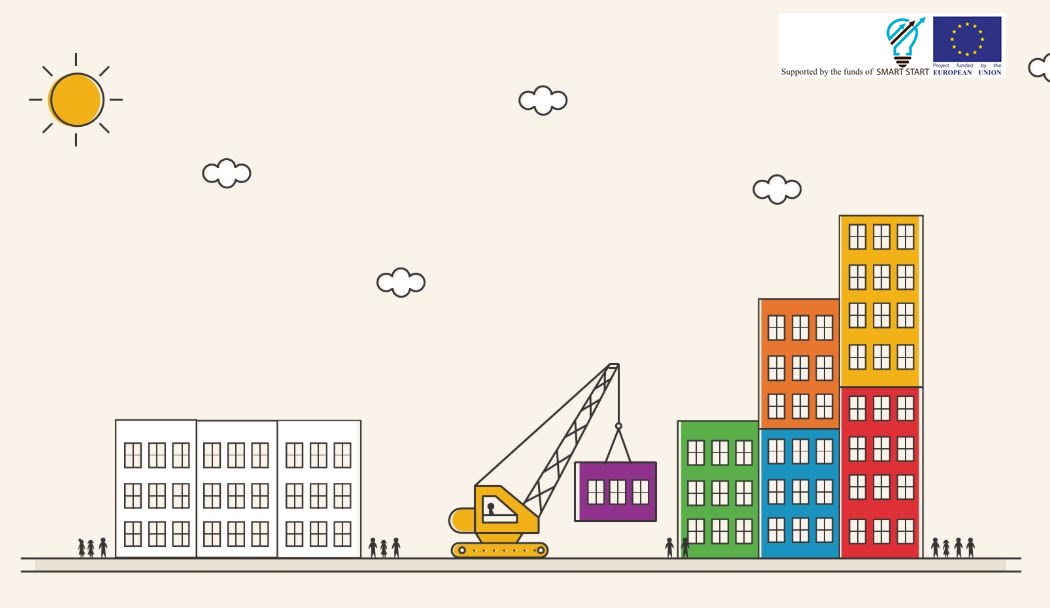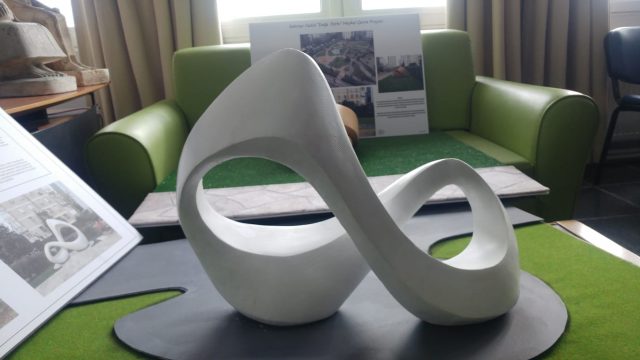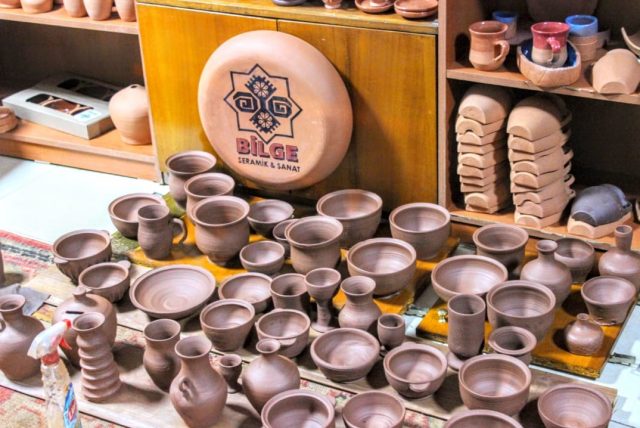Civil Society Organizations funded by “Smart Start”, a EU Project Supporting Social Entrepreneurship in Turkey, Continue their way with a New Perspective

Smart Start project supported by the European Union has given funds to 12 civil society organizations (CSO) and social entrepreneurships to help create an environment that provide opportunities in social entrepreneurship and develop sustainability of civil society organizations in Turkey and Balkan countries.
Representative of YADA Foundation, Smart Start project’s Turkey executer, Ceylan Özünel said that the project will be completed in 2019. “When we started the project in 2016, social enterprises perception and awareness in Turkey was much lower than as is today. Today, we see that NGOs are creating social enterprise models and the number of players producing other social enterprise models is increasing day by day. With the Smart Start project we carried out with the countries of Bosnia and Herzegovina, Serbia, Montenegro, Macedonia and Croatia, we had the chance to act together to exchange information, share experiences and disseminate social enterprise. We have realised that Turkey has experienced the same challenges and developments that Western Balkan countries faced in their ways. Three years ago, we conducted a survey in all these countries with the participation of 300 NGOs. We have seen that more than half of the NGOs do not have a social entrepreneurship model, 85% are not economic enterprises, and that the majority of them try to provide financial sustainability through short-term projects and financial resources. For more sustainable models, where financial resources were also provided by funds and grants, it was seen that CSOs were either in the process of thinking or implementing their ideas. In addition to the difficulty of finding financial resources, the lack of human resources also stood out. In other words, for an NGO to implement and maintain the social enterprise model, it needs a human resources structure that has the skills to work with financial resources, to master marketing techniques and to maintain a business. We continue to work on capacity building on all these issues. Within the scope of Smart Start, CSOs who are eligible to receive micro-grants through social enterprise models made great efforts to implement these models. We hope that they will continue to work with the same willingness to make their social enterprise models sustainable. As such inspiring and good examples grow, we believe that social entrepreneurship will become more widespread among CSOs, and that NGOs will be more inclined to see social missions as a model in order to sustain their mission.”
It made us happy on behalf of the future and sustainability of civil society that traditional non-governmental organizations in Turkey met with the idea of social entrepreneurship which became popular in recent years. We personally met with Smart Start winners and asked where they used the fund they received from the project and their ideas on the project’s returns.
Transparency International Turkey (Uluslararası Şeffaflık Derneği): “It was our goal through micro-grant we receive from Smart Start to build a civil society project management model in Turkey where its financial resource comes directly from the project beneficiaries with which way we ensure the sustainability of the project”
Transparency International Turkey, one of the non-governmental organizations from Turkey selected in respect of Smart Start project, was founded in 1993 and today Transparency International is a global non-governmental organization operating in about 120 countries. The organization defines itself by the fact that corruption is a phenomenon that drives societies to corruoption and therefore must be tackled. Transparency International Turkey has been active in Turkey since 2008 and positions itself as a research and advocacy instutition. They conduct extensive research in both governmental and local authorities as well as the private sector and they prepare reform proposals and action plans through these research with a well-attended approach.
Yalin Hatipoglu, the General Coordinator of the association, states that their mission is to fight against corruption and that they aim to provide this by advocating for the principles of transparency, accountability and participation. Hatipoglu states that they launched a project model with Smart Start which they have not tried before and adds “In the scope of micro-funds we received from Smart, we tried to build a civil society project management model in Turkey where its financial resource comes directly from the project beneficiaries with which way we ensure the sustainability of the project. In other words, instead of a model funded by a third party, we have developed a project model that satisfies its financial need from the sector, institutions and people who will benefit directly from the outputs of the project by giving a certain fee for those outputs. This model has similar aspects to social enterprenurship, the most important of which is that all the income obtained from it will be used to finance the reports of the later stages of the same project and to cover the other expenses, which means we will invest every income we have gained during the project back to the project itself.
As a non-governmental organization, we produce a product or service that focuses on the issue or problem, and produce an income from it. For this reason, we wanted to minimize the concerns about financial sustainability of this cooperation program we are conducting with the pharmaceutical sector as much as possible, and we have created such a revenue model with the support of Smart Start. But it is a very long-term effort to put this income model within the body of the association and apply it in our other projects.
After being one of the organizations selected by Smart Start, we have attended an event held at the Impact Hub, we met with other social enterprise owners from Turkey and listened to their presentations, it was a pleasant experience for us. ”
Life with Asperger Syndrome and Autism Association (Asperger Sendromu ve Otizmle Hayat Derneği): “We design all Asperder commercial enterprises, including the projects we have undertaken with Smart Start, as enterprises that families suffering from all psychological and mental illnesses, including autism, can develop themselves in socio-economical terms.”
Life with Asperger Syndrome and Autism Association (Asperder), is one of the civil society organizations which have a broad vision and which perform activities in Turkey with the future perspectives. The overall objective of Asperder is to serve high-functioning people with asperger syndrome and autism, and also their families in Turkey by raising the quality of their life as much as to the contemporary standards. Founded in 2008, Asperder has been providing awareness services since the day it was founded, seeking rights, improving existing rights, running awareness, and advising families with autism and asperger. The association established its first commercial enterprise in 2012 and has two commercial enterprises operating today and four are in preparation.
President of the association, Mesut Başar, explains Asperder Sport, the first commercial enterprise established by Asperder: “The most important reason for us to start with sports products was that doing sports plays very large role in the treatment of autism as there are many children rehabilitated by doing sports. Physical exercises, brain gymnastics, and other sports activities benefit everyone, as well as psychological and mental disorders. At the beginning, we started by saying that this field is a suitable area for our mission.”
Başar states that when they want to build Asperder’s second business, they encounter with Smart Start and they found Asperder Film with the micro-grant given by Smart Start and shoot their first short film. “Asperder Film was founded as one of the winners of the Smart Start project and our production company called Asperder Film filmed our autism short film called “TWO – An Autism Tale” with the funds we received from Smart Start.”
Asperder have four other commercial enterprises which are in preparation process: Asperder Real Estate, Asperder Advertising, Asperder Printing and Asperder Promotional Products. Basar stated “We design all Asperder commercial enterprises, including the projects we have undertaken with Smart Start, as enterprises that families who suffer from all psychological and mental illnesses, including autism, can develop themselves in socio-economical terms.”
Asperder’s projects are not only limited to commercial enterprises. Life with Autism Portal (Otizmle Hayat Portalı) has been designed as an online platform where families with autism will firstly have communication, cooperation, unity and solidarity with each other, with field experts, stakeholder institutions, local and central institutions and other non-governmental organizations. Başar said about the portal whose technological infrastructure has been completed to a great extent, “Our primary goal with the portal is healthy communication and information. Although it is only autism in its name, we expect this portal to cover all mental illness and disability groups and to evolve in this direction over time.”

Another project of Asperder is the sculpture project that they have implemented in collaboration with the Department of Sculpture of Mimar Sinan Fine Arts University to create awareness about autism. The sculpture that won the competition organized by the senior students of the sculpture department has a slogan of “Touch to Autism”, and according to the protocol signed with Kadıköy Municipality, it is expected to be deployed on a large scale in an area recently designated as the Autism Awareness Field in a public park in Kadıköy.
Cultural Routes Association (Kültür Rotaları Derneği): “Before the Smart Start project, social entrepreneurship was an unknown area for us, thanks to the trainings and consultations we have been provided, we can say that we now feel competent”
Cultural Routes Association is an association established to ensure the improvement and maintenance situated in the promotion of cultural routes in Turkey. They spend their income generated by the sales of the guide books they have written on the cultural routes in the cleaning, marking, signage and maintenance of the same routes.
Irem Zararsız from the association team, stated that they did not have much information about social entrepreneurship before the Smart Start project, but now they feel competent thanks to the trainings they received, “We think that the social enterprise aims to create social benefit from its work and to generate income from this social benefit. In Turkey, since social entrepreneurship is not known much by the society, we feel ourselves to be obligated to introduce in details for the moment, but in the future we believe this will change”.
Cultural Routes Association used a part of the financial support provided by the Smart Start project for a guide that explains the Lycian Way (Likya Yolu) from Fethiye to Antalya to translate into Russian, and put on the market in Russia (now the Lycian Way is available in English, Turkish and Russian languages). Rest of the fund has been used to develop a mobile application in order to gather cultural routes in Turkey under one roof.
When we spoke of the difficulties of maintaining operating as social enterprises in Turkey with Zararsız, she mentioned they define themselves as part of the civil society rather than private sector, they feel closer to civil society. “There are the disadvantage of being social entrepreneurs in Turkey. It is difficult to prove to people that jobs are primarily for social benefit. We have no advantage in terms of tax, because “works” are only considered as commercial business, so you need to pay income tax; this is a big problem for a non-profit structure which has no profit orientation like a normal commercial enterprise.”
Bilge Nesil Youth Informatics Art and Tourism Association (Bilge Nesil Gençlik Bilişim Sanat ve Turizm Derneği): “We have created Bilge Ceramic & Art brand with our project implemented within the scope of Smart Start, we have understood the social entrepreneurship and channeled our vision into this field”
Bilge Ceramic & Art social enterprise established within the body of Bilge Nesil Youth Informatics Art and Tourism Association is an enterprise that provides employment to disadvantaged groups, interprets art and craft with modern designs and encourages local production. They bring the designs of young artists together with Balıkesir women’s skilled hands for the sake of ceramic art craft which had faded by the death of the last ceramic master in Balıkesir 25 years ago.

Muhammet Çetin, the president of the association and the founder of Bilge Art & Ceramic brand, stated that they produced healthy products for people with natural raw materials and production methods in a way that is compatible with sustainable development methods. Since the products are from the soil, they are harmless to environment and health, production method improves the human imagination and therapy. Since it is a dough crafting, it happens to be a field where women are more willing and resourceful, therefore it is suitable for gender equality, and when it comes to waste, it becomes to be part of nature and it includes no harmful substances. Since we produce decorative and useful products visually and artistically, it attracts the attention of women.
When we asked Çetin for Smart Start process, “We have been involved in various projects before, but we are familiar with the Smart Start project for the first time. Since social entrepreneurship is a field that is newly recognized in our country, we did not have enough information about it. Since 2016, we have participated in many training related to social entrepreneurship and channeled our vision with a social entrepreneurial focus and formed Bilge Ceramic & Art within the scope of Smart Start. Now we are carrying out our projects and activities with social enterprise point of view and we are benefiting 50 women in total directly.”
Çetin defines social enterprises as “defining an existing problem in the society and solving such with an entrepreneurial approach”. According to Çetin, social entrepreneurship is an adventure that starts with the entrepreneur determine a need for a community that suffers from a social problem. “On the one hand, you need to achieve innovative approaches such as technology enterprises to resolve the problem or need permanently and sustainably, and on the other hand, you need to survive as a company without being dependent on any fund or support by creating a social impact and establishing a profit and loss balance. When you provide all these points, you become a complete social enterprise.”
For Bilge Ceramic & Art, Çetin stated that they have successfully implemented the model in Balıkesir and that they are planning to be operational in Denizli for the next step. Preparing to export a collection of 250 pieces in April 2019 for the order they received from Lebanon and Italy for Bilge Ceramic & Art’s products, Çetin said that they adapted the art of ceramics to social entrepreneurship rather than a commercial enterprise. “We describe it as a society. I could have set up this business as a commercial venture, but it wouldn’t give me as much pleasure as this.”


Bizi Takip Edin